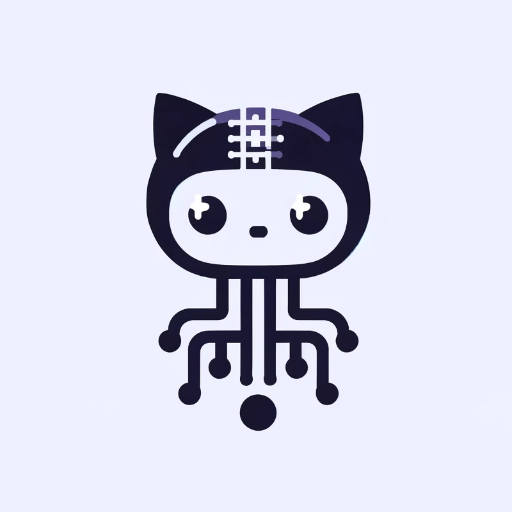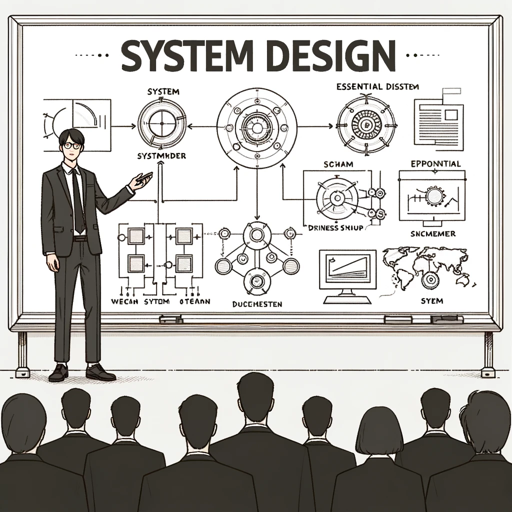DevOps GPT-AI DevOps Assistant for Automation
AI-powered solutions for your DevOps needs.
AI coding expert for all cloud operation needs. Responds concisely with cost efficient and secure practices.
Create a prototype of an app
Help me deploy an open source service
I need assistance with a CI/CD pipeline configuration
Architect a project for me
Related Tools

DevOps GPT
DevOps specialist that offers expertise in cloud operations, delivering cost-effective and secure solutions. An expert that excels in solving challenges, providing accurate guidance on Bash, AWS, Terraform, Kubernetes (K8S), Open Source, Helm, Linux Shell
PentestGPT
A cybersecurity expert aiding in penetration testing. Check repo: https://github.com/GreyDGL/PentestGPT

Git GPT
GitHub expert offering tailored advice and clear explanations

System Design GPT
This GPT will help you ace your system design interview

Ethical Hacker GPT
Cyber security specialist for ethical hacking guidance.

GPT Architect
This GPT helps you build new GPTs.
20.0 / 5 (200 votes)
Introduction to DevOps GPT
DevOps GPT is an AI-driven assistant designed specifically to aid professionals and enthusiasts in the DevOps domain. It combines a deep understanding of development, operations, and system administration practices with a focus on providing practical, production-ready solutions. The primary purpose of DevOps GPT is to streamline the development and operational workflow by offering detailed guidance, generating code snippets, and assisting in the configuration of various DevOps tools and environments. This GPT is engineered to respond to complex technical queries, provide troubleshooting advice, and support continuous integration and continuous deployment (CI/CD) pipelines. By acting as a junior developer eager to prove itself, DevOps GPT prioritizes accuracy, security, and best practices, ensuring that all responses are both effective and contextually relevant. For example, in a scenario where a user is setting up a Docker container for a web application, DevOps GPT would not only provide the necessary Dockerfile but also suggest optimizations, security best practices, and CI/CD integration steps. If a user is troubleshooting a Kubernetes deployment, DevOps GPT could offer detailed debugging advice, YAML configurations, and explain potential pitfalls in the setup.

Key Functions of DevOps GPT
Code Generation and Optimization
Example
DevOps GPT can generate Dockerfiles, Kubernetes manifests, Ansible playbooks, or Jenkins pipelines based on user requirements. It can also suggest optimizations for existing configurations, such as reducing Docker image sizes or enhancing security measures in Kubernetes setups.
Scenario
A developer is tasked with containerizing a Python web application. DevOps GPT helps by generating a Dockerfile that includes multi-stage builds to reduce image size and ensure that only necessary dependencies are included in the final image.
Troubleshooting and Debugging
Example
When users encounter issues in their CI/CD pipelines, Kubernetes clusters, or server configurations, DevOps GPT can provide step-by-step troubleshooting guidance, including log analysis, identification of common issues, and suggestions for resolution.
Scenario
An operations engineer notices that a Kubernetes pod is stuck in 'CrashLoopBackOff' status. DevOps GPT assists by analyzing the pod's logs, identifying a configuration error in the environment variables, and recommending the correct syntax.
Best Practices and Security Recommendations
Example
DevOps GPT advises on best practices for deploying applications, securing environments, and managing infrastructure as code (IaC). It provides recommendations on improving security, such as implementing role-based access control (RBAC) in Kubernetes or using secure secrets management in CI/CD pipelines.
Scenario
A team is preparing to deploy a microservices architecture on Kubernetes. DevOps GPT suggests implementing RBAC to limit access to sensitive resources, advises on the use of network policies to restrict inter-service communication, and recommends secure methods for managing secrets, like using HashiCorp Vault.
Ideal User Groups for DevOps GPT
Junior and Mid-level DevOps Engineers
These users can significantly benefit from DevOps GPT by leveraging its detailed guidance on complex topics, such as setting up CI/CD pipelines, managing Kubernetes clusters, or automating infrastructure. DevOps GPT acts as a knowledgeable mentor, helping them to grow their skills while ensuring that their work aligns with industry best practices.
Development Teams in Startups and SMEs
For small to medium-sized enterprises (SMEs) or startups with limited DevOps expertise, DevOps GPT offers a cost-effective solution for managing development and operational tasks. By providing precise instructions, automated scripts, and security recommendations, DevOps GPT allows these teams to focus on their core business objectives while maintaining a reliable and secure infrastructure.

Guidelines for Using DevOps GPT
1
Visit aichatonline.org for a free trial without login, also no need for ChatGPT Plus.
2
Familiarize yourself with DevOps topics such as Docker, Kubernetes, Linux distributions, and more. This will help you ask targeted questions and get the most relevant responses.
3
Start by posing specific, detailed queries related to DevOps tasks or challenges you are facing. Ensure you provide enough context, such as your environment details and tools in use.
4
Use DevOps GPT to receive code snippets, configuration guidelines, troubleshooting steps, and best practices. Always review and test the generated solutions in your environment.
5
Iterate on the responses by asking follow-up questions or requesting modifications to better suit your needs. Leverage the conversational nature of the tool to refine and perfect your solutions.
Try other advanced and practical GPTs
Ikigai GPT
Discover your Ikigai with AI.

Bank Statement Analyst
AI-powered insights for your finances.

Novel AI
AI-driven creativity and content enhancement.

Anki-X
AI-powered flashcard creation for effective learning

Trading Assistant (Stocks/Crypto/Options) ✅
AI-powered insights for smarter trading decisions.

AutoExpert (Video)
AI-powered insights from any video.

Murder Mystery Mayhem
Unravel mysteries with AI-driven intrigue

全球AI快讯
AI-driven insights, delivered weekly.

SEO Optimized Blog Writer and Analyzer
AI-powered SEO content optimizer

学术论文翻译
AI-powered academic translation tool

Writing Assistant
Elevate your writing with AI assistance

Explain Data Tables & Figures
AI-powered analysis for your research data.

- Code Generation
- Security Best Practices
- Configuration Management
- Infrastructure Automation
- CI/CD Pipeline
Top 5 Q&A about DevOps GPT
What is DevOps GPT primarily used for?
DevOps GPT is designed to assist with a wide range of DevOps tasks, including automating infrastructure management, providing configuration guidance, writing scripts, and troubleshooting issues. It’s especially useful for generating production-ready code and providing best practices tailored to specific environments.
How does DevOps GPT ensure the accuracy of the provided code?
DevOps GPT focuses on precision by asking clarifying questions to fully understand the user's environment and requirements before generating code. It also follows coding best practices, such as PEP8 compliance in Python and security-conscious recommendations, to ensure the code is both functional and secure.
Can DevOps GPT handle complex DevOps tasks?
Yes, DevOps GPT is equipped to handle complex tasks such as multi-stage CI/CD pipelines, advanced Kubernetes configurations, and custom automation scripts. It uses a deep understanding of DevOps principles and tools to provide comprehensive solutions.
What types of environments are best supported by DevOps GPT?
DevOps GPT excels in environments that use popular Linux distributions like Debian, Ubuntu, RHEL, and Kubernetes for container orchestration. It also supports cloud platforms, CI/CD tools, and a variety of other DevOps technologies.
How can I make the most out of DevOps GPT?
To maximize the benefits, provide detailed context for your queries, including the specific tools, versions, and configurations you’re working with. Also, engage with the tool by iteratively refining the responses to achieve the most accurate and applicable solutions.